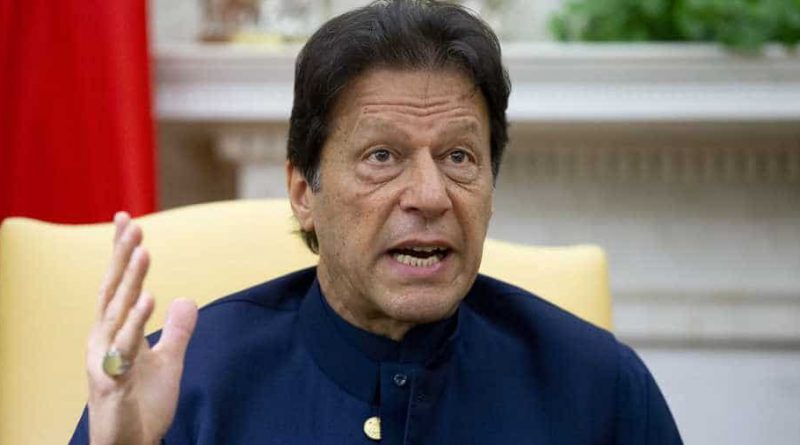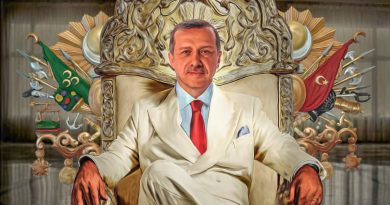Pakistan’s Army Chief supports Imran Khan’s arrest in order to “put an end to his political career”: Reports
Khan has effectively cultivated a “anti-Army” narrative in Pakistan since being deposed in April 2022 thanks to his well-executed social media strategy
Imran Khan’s political career could be ended by his arrest in the Toshakhana case, according to General Syed Asim Munir, the Chief of Army Staff (COAS) of Pakistan.
Significantly, Khan has specifically blamed General Munir for the ongoing campaign of repression against him being carried out by the Pakistan Rangers and the police, two paramilitary federal law enforcement agencies.
Pakistan is on the verge of a total breakdown of law and order as a result of the escalating “pro-Imran Khan” riots there. Some commentators are even concerned about a situation resembling a civil war or, at worst, an emergency military rule to regain the nation’s stability.
Imran Khan is being pursued from his Zaman Park mansion in Lahore by the military establishment and the ruling Pakistan Democratic Movement (PDM) coalition.
The Pakistan Tehreek-i-Insaf (PTI) party members and supporters were urged to assemble outside Imran Khan’s Zaman Park mansion in Lahore on March 14 in order to impede the police’s effort to arrest him, according to a story in Dawn. His fans, including a number of well-known Pakistani actors, lawyers, and campaigners, vented their outrage on social media.
According to reports, the PTI supporters outside Khan’s home did not pose a threat as violent as that to the law enforcement agencies.
Recent events have demonstrated two things: first, Imran Khan continues to be Pakistan’s most popular politician and would probably win re-election if “free and fair” elections were held there.
Second, the military establishment has made the decision to imprison Khan or bar him from running in any future elections. Moreover, the Pakistani Army thinks that Khan can no longer be trusted because of the public altercation between the PTI chairman and the previous COAS General Qamar Javed Bajwa.
Khan has effectively cultivated a “anti-Army” narrative in Pakistan since being deposed in April 2022 thanks to his well-executed social media strategy, which he is now using in the middle of the ongoing riots.
Imran Khan has been using various social media channels to post films, images, and comments with the expected goal of exploiting the ‘victim card’ to draw attention to his situation on both a national and international level.
His interviews have also been shown in foreign media outlets to draw attention to Pakistan’s ongoing political unrest and street violence.
Khan has so far been able to make great progress thanks to the persuasive story he has been constructing about his impending arrest and his social media appeals. Due to their “draconian” acts, the PDM government and its military backers are receiving a tremendous amount of online criticism. Most significantly, Khan questioned the “neutrality” of the military establishment by accusing them of sending Pakistan Rangers to attack “unarmed” PTI protesters.
The Lahore High Court (LHC) intervened on March 15 and commanded a “one-day” halt to the police operation at Zaman Park following a day-long violent conflict between PTI supporters and law enforcement forces outside Imran Khan’s residence. This action may have provided Khan and his supporters some breathing room before to the final police assault to detain the PTI chief.
Arif Alvi, the president of Pakistan and the head of the PTI, seized the chance to reaffirm his offer to mediate between the warring political forces in order to bring about a peaceful resolution, according to Dawn.
Alvi stated in an unexpected tweet from the president of the nation: “The things that happened today make me very sorry. unhealthy political retribution. Government priorities in a nation that should be centred on the suffering of its citizens economically are poor. Are we eradicating the political system? Like many politicians, I am concerned about the safety and dignity of @ImranKhanPTI.”
Imran Khan said in a series of images and videos that his alleged detention was only “drama since actual objective is to abduct & assassinate,” which prompted Alvi’s response.
Moreover, PTI leader Yasmin Rashid allegedly asked President Arif Alvi to “intervene” in the police operation against Khan in a supposedly leaked phone call. Arif Alvi has the power to look into the potential of using the country’s emergency constitutional provisions in his capacity as Pakistan’s president. Part 10 of the Pakistani Constitution, which has six articles ranging in number from Article 232 to Article 237, contains the details of these clauses, according to Dawn.
In the event of internal unrest beyond the control of any one province, the President is authorised by Article 232 to proclaim a state of emergency.
In this scenario, the proclamation needs to be submitted to Parliament for approval by both Houses within ten days.
In case of “breakdown of the constitutional apparatus” in any particular province, the President may declare an emergency under Article 234.
In the worst-case scenario, Alvi would have thought about using this item in Punjab, but the governor of the region—who also happens to be a member of the opposition Pakistan Muslim League-Nawaz (PML-N) party—would have objected. Alvi is constitutionally empowered to investigate the application of emergency measures in Pakistan.
Such a choice, however, cannot be made without the powerful military establishment’s consent and without considering the long-term political repercussions for the PTI.
Finally, a civil war-like situation will develop in Pakistan as a result of the escalating violence between Imran Khan and the state officials.



